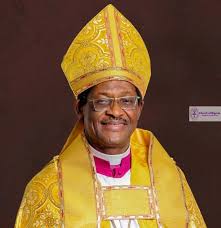The Primate of the Church of Nigeria, Anglican Communion, Reverend Henry Ndukuba, has called on Nigerians to remain hopeful despite the country’s worsening economic challenges.
Speaking at the 35th Anniversary Awards and Carnival for Christ Celebration in Abuja, Reverend Ndukuba emphasized the need for faith, good leadership, and industrial development to revive Nigeria’s fortunes.
Reverend Ndukuba reassured citizens that God would eventually lift the country out of its difficulties, urging them not to lose hope despite the hardships. He identified corruption and poor leadership as major obstacles to Nigeria’s progress, criticizing the alleged misuse of public funds, including claims that over ₦318 billion was spent on implementing a new version of the national anthem.
READ ALSO:
I’ll take care of you, you won’t suffer, Adeleke tells PWDs
FG supports Rivers flood victims with relief aid, empowerment tool
Okocha leads APC in Rivers, vows to unseat PDP in 2027
To combat food shortages and promote self-reliance, Ndukuba advocated for revitalizing agriculture and agro-industries. He also called for investments in processing agricultural products like tomatoes, cotton, maize, and cereals to boost the economy and create jobs. The Primate warned that palliatives may provide temporary relief but are often marred by corruption and fail to reach those most in need.
Instead, he proposed a long-term focus on building industries, revitalizing the textile sector, and developing agro-businesses. This, he believes, can restore dignity to families and position Nigeria as a food exporter for Africa. Reverend Ndukuba’s message emphasized hope and trust in God, urging collective efforts to overcome Nigeria’s challenges.
As the Anglican Communion celebrated 35 years of existence in Abuja, Ndukuba prayed for God’s blessings on Nigeria, its leaders, and citizens. This is not the first time Reverend Ndukuba has spoken out on Nigeria’s economic challenges. Previously, he urged the Federal Government to reconsider fiscal policies and rethink external borrowing.

